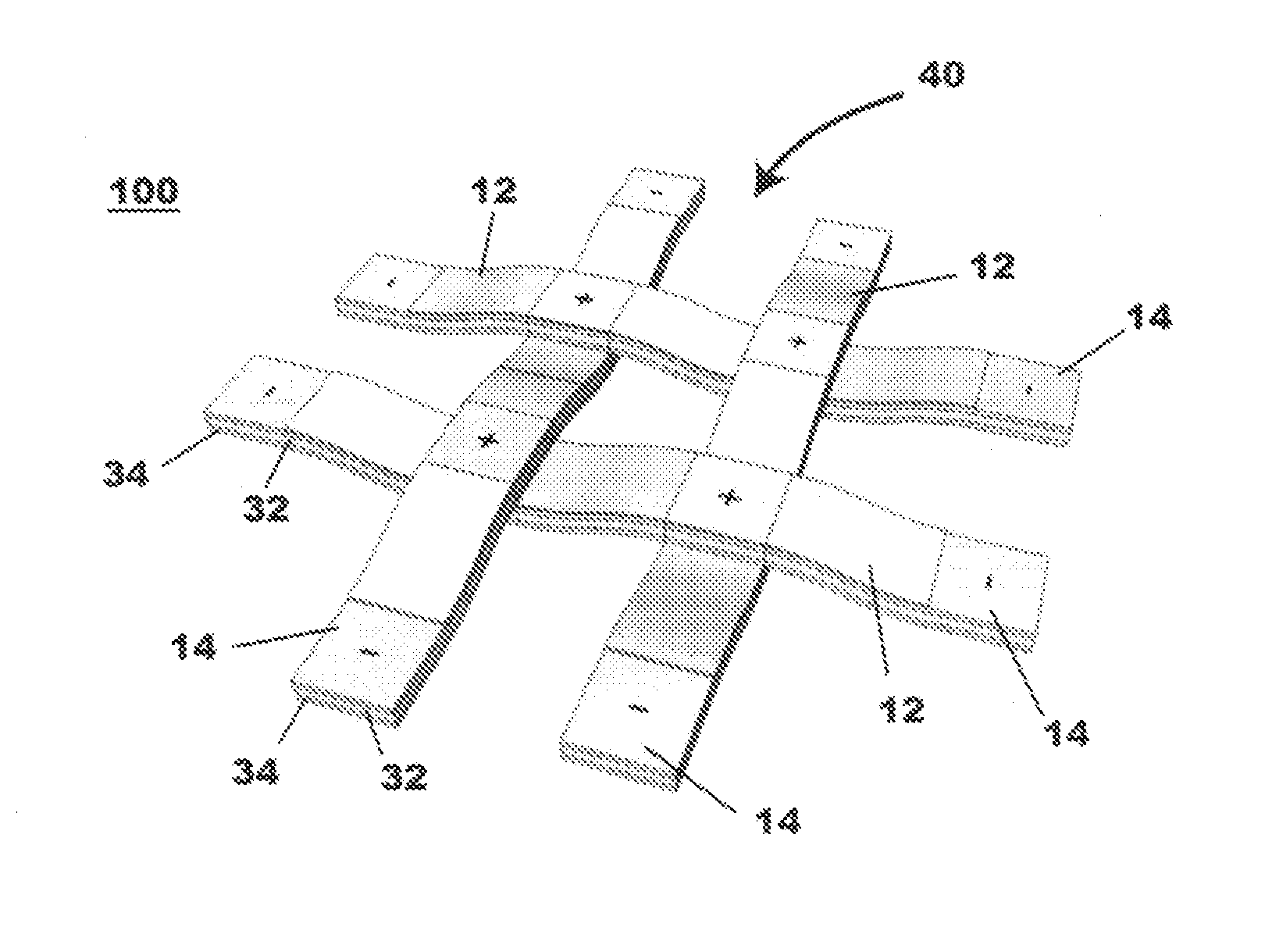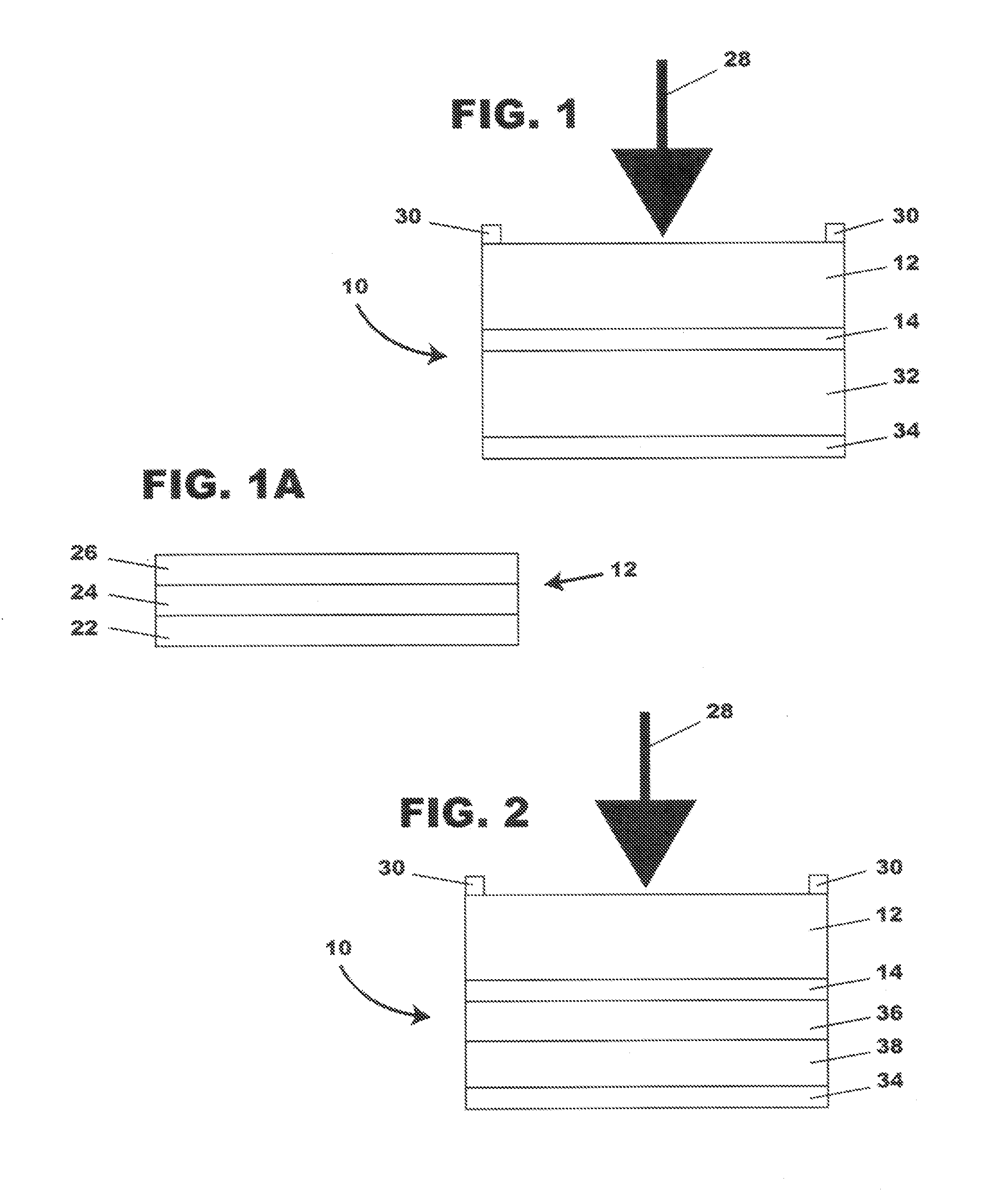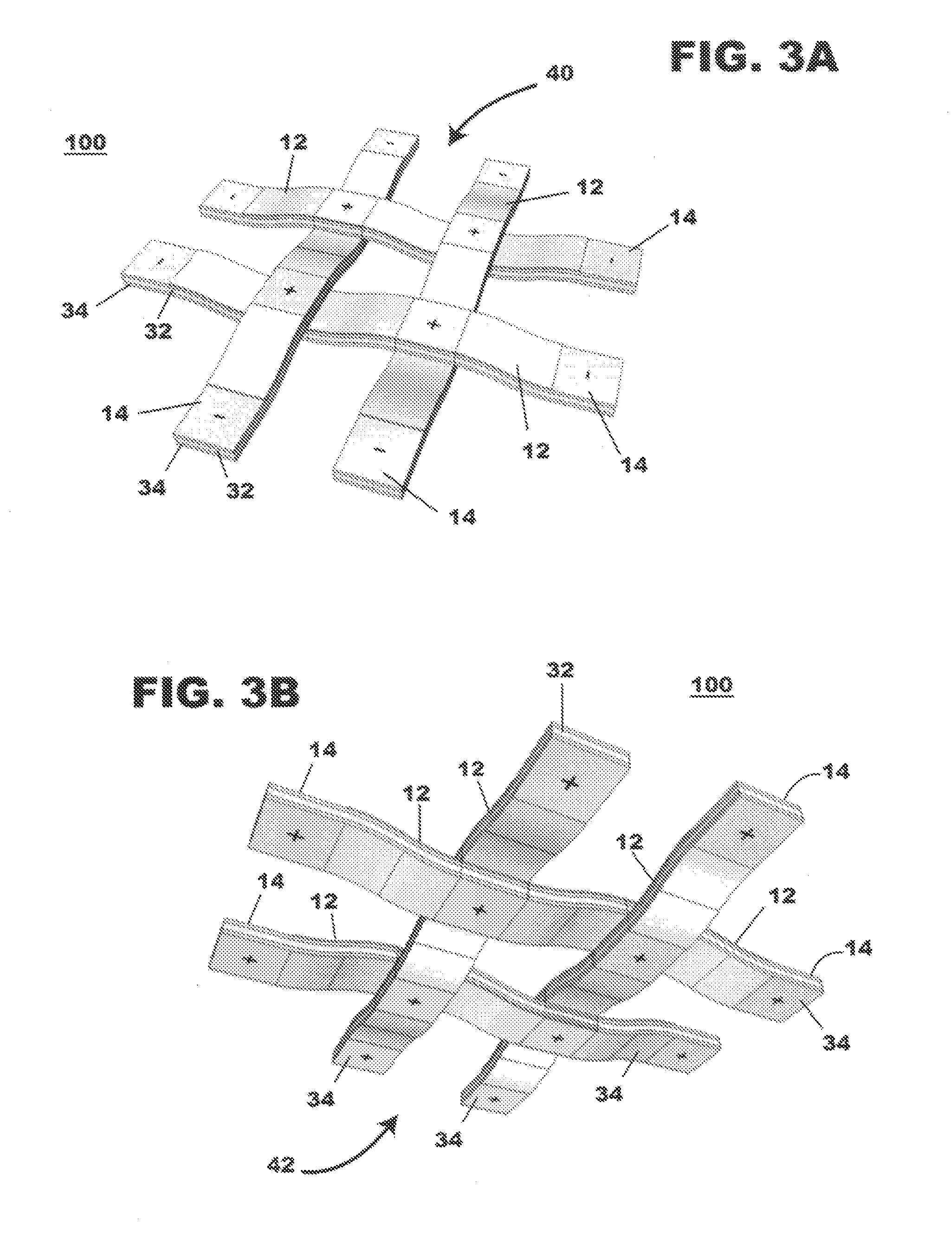Photovoltaic textiles
a technology of photovoltaic textiles and textiles, applied in the field of textiles, can solve the problem of not being able to utilize the entire surface area of solar textiles to collect solar energy, and achieve the effects of improving manufacturing options, improving solar textile performance, and eliminating shadowing limitations
- Summary
- Abstract
- Description
- Claims
- Application Information
AI Technical Summary
Benefits of technology
Problems solved by technology
Method used
Image
Examples
Embodiment Construction
[0026]The term “deposit” covers all technologies used in coating a surface with a material including but not limited to spraying, dipping, spin coating, vacuum and chemical deposition, printing including, but not limited to, inkjet printing.
[0027]The term “light” includes a range of electromagnetic radiation known as visible light and portions of infrared and ultraviolet spectrums applicable to generating electricity from photovoltaic components.
[0028]The term “photovoltaic” means having a capacity to contribute to the production of electricity across opposite electrodes as a result of being exposed to electromagnetic radiation.
[0029]The abbreviation “PPV” is short for polymer photovoltaic and describes a component or system having photovoltaic function which includes a structural polymer and other materials.
[0030]The abbreviation “PV” is short for photovoltaic and describes a component or system having photovoltaic function, wherein the photovoltaic may not be a polymeric component...
PUM
 Login to View More
Login to View More Abstract
Description
Claims
Application Information
 Login to View More
Login to View More - R&D
- Intellectual Property
- Life Sciences
- Materials
- Tech Scout
- Unparalleled Data Quality
- Higher Quality Content
- 60% Fewer Hallucinations
Browse by: Latest US Patents, China's latest patents, Technical Efficacy Thesaurus, Application Domain, Technology Topic, Popular Technical Reports.
© 2025 PatSnap. All rights reserved.Legal|Privacy policy|Modern Slavery Act Transparency Statement|Sitemap|About US| Contact US: help@patsnap.com



